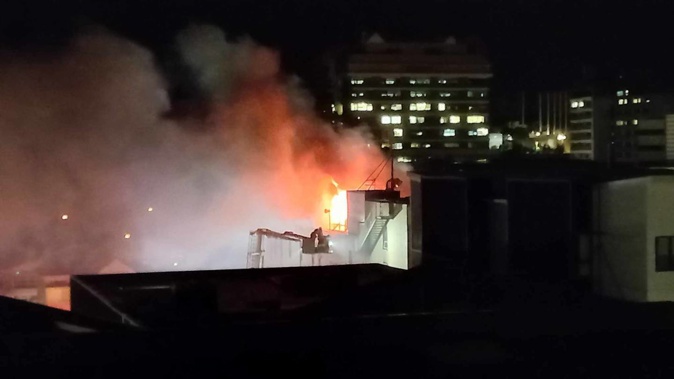
An expert says those who deliberately light fires are often psychologically vulnerable, and struggling with relationships, impulsivity and emotional expression.
Police are this week continuing their examination of Loafers Lodge, the scene of Wellington’s worst fire in at least a decade. The blaze is being treated as arson, with police revealing there were two fires lit that night.
Police have so far recovered five bodies in the building, and fewer than 10 people are unaccounted for.
From the Loafers Lodge fire to rubbish fires and people setting others’ vehicles ablaze in road-rage attacks, there were myriad reasons a person might commit arson, an expert said.
Victoria University’s Dr Nichola Tyler, from the science faculty, has a special interest in deliberate firesetting in her research.
She said people set fires for a variety of reasons, “including curiosity, excitement, boredom, anger, or as a coping mechanism if things are not going well in their lives”.
“Research suggests that people who set fires often present with a range of psychological vulnerabilities including difficulties with communication and relationships, impulsivity, and emotion expression,” Tyler told the Herald.
Police and fire investigators on the top level of Loafers Lodge as they search the site of the deadly fire, which police allege was an arson attack. Photo / George Heard
Not everybody who set fires wanted to harm people, either. The range of different motivations behind deliberate fire-setting also meant the intention to harm “varies across incidents”.
Tyler also noted it was hard to know how many cases of arson there actually were in New Zealand every year.
“Arson has a relatively low detection rate, and therefore the number of deliberately set fires exceeds the number of people prosecuted in the courts for arson offences each year.”
Despite the fact not everybody wanted to kill or hurt others with arson, the “unpredictable nature of fire” meant the outcome of an arson attack was often “out of the perpetrator’s hands”.
“Therefore there are significant risks involved with this behaviour.”
/cloudfront-ap-southeast-2.images.arcpublishing.com/nzme/GUZLEJNN5LZMZHBWOUMV3IPM2I.jpg)
Wayne Thomas Patterson was recently convicted on arson charges. He was previously in court for one of New Zealand's biggest benefit fraud cases.
Earlier this week, one of New Zealand’s biggest benefit fraudsters was sent back to prison for offending which included several arson attacks or attempts against people he believed had wronged him.
Wayne Thomas Patterson was sentenced in the Wellington District Court on Tuesday after he deliberately set fire to several vehicles and tried to burn down a postie van.
In one of the cases, the cars were parked in a carport attached to the victim’s house, and just metres from where his three young children were asleep in their beds.
Patterson lit the fires to seek retribution against people he believed were responsible for the loss of his job.
The postie van arson attempt was because Patterson had fraudulently ordered $500,000 worth of gold to be delivered to a Martinborough couple’s home while they were on holiday, but didn’t realise their postman was holding their mail until their return.
Another arsonist, Angelo Dominic Bitossi, was jailed in 2015 for starting a fire at a self-storage building that destroyed millions of dollars’ worth of property.
He denied lighting the fire, which damaged items in 200 units, but was found guilty at trial.
About 80 firefighters were needed to put out the fire, which the Fire Service described as the biggest in the capital “for a long time”.
Take your Radio, Podcasts and Music with you

/cloudfront-ap-southeast-2.images.arcpublishing.com/nzme/BOZW5WKSLFA35PZ22WGDA64EMM.JPG)








